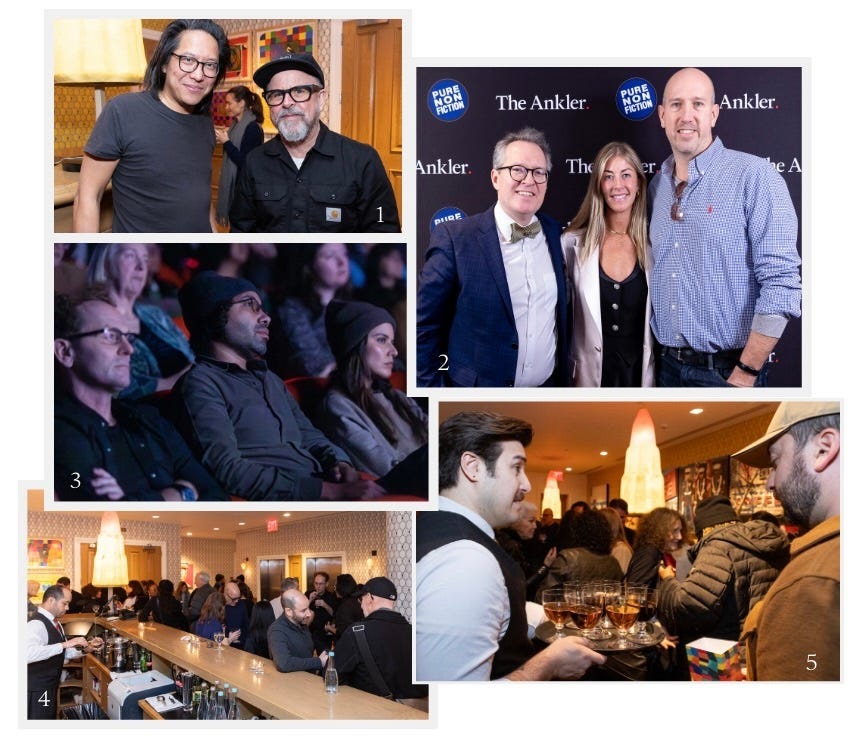Documentary Spotlight in NYC: Fierce Stories of Art, War, Abuse & Hope
WATCH: Filmmakers behind Oscar-shortlisted titles including ‘Eno,’ ‘Black Box Diaries,’ ‘Daughters,’ ‘Union’ & more join The Ankler & Pure Nonfiction live
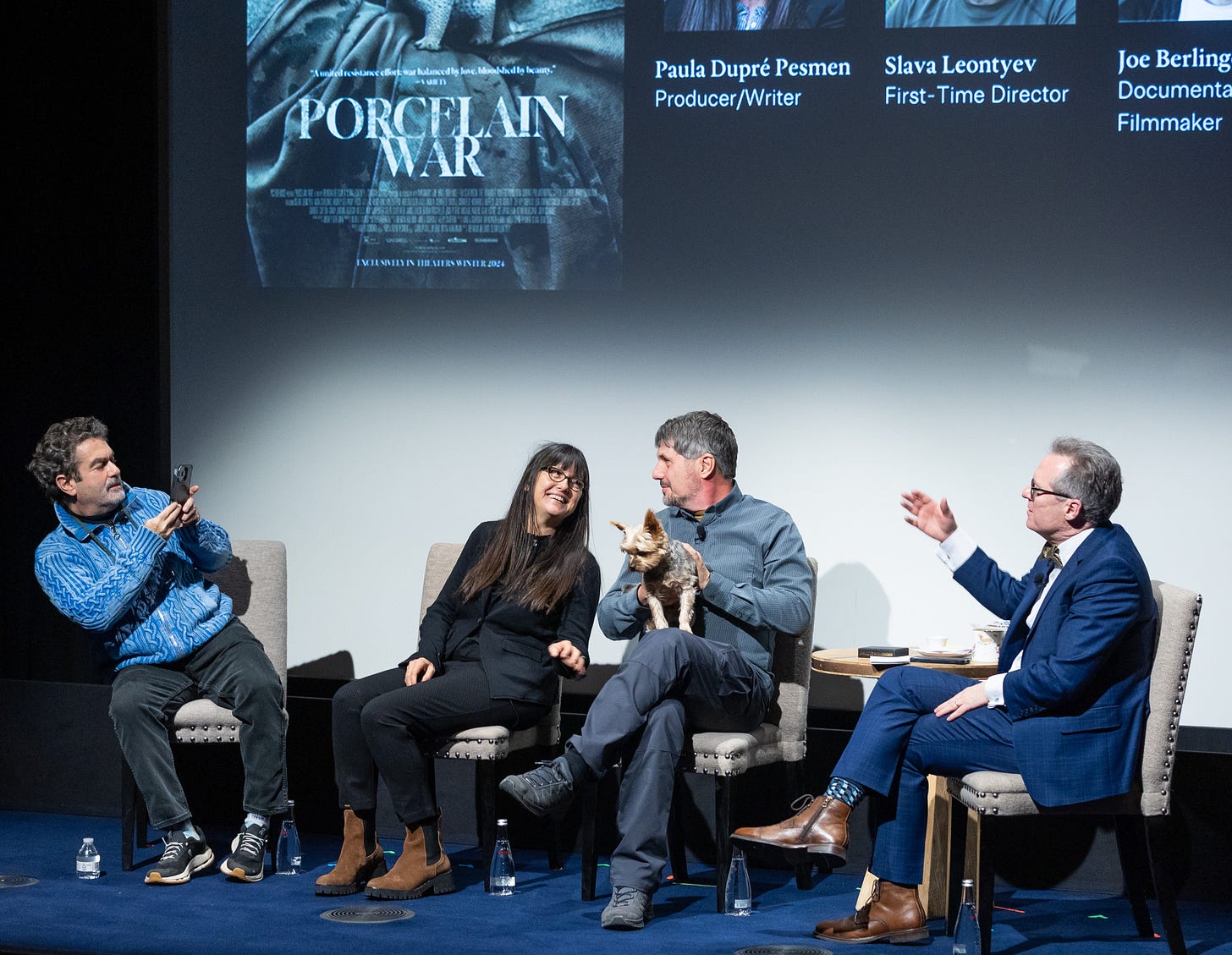
At AnklerEnjoy, the home for post-Ankler Events content, you can watch all of the documentary panels from you can watch all the panels from our Jan. 5 gathering in NYC and previous Documentary Spotlight events as well as as well as view additional photos.
You can also listen to audio of these conversations with Oscar contenders in conversation with Thom Powers here and here on the Pure Nonfiction podcast.
Turn it upside down. Look at the order in which you do things.
To kick off the latest edition of The Ankler & Pure Nonfiction’s Documentary Spotlight, Eno director Gary Hustwit handed out cards with these kinds of creative provocations to an audience of about 90 in the screening room at New York’s Crosby Street Hotel. A mix of film lovers and AMPAS documentary branch members, they were there to hear from Hustwit and other principals involved with seven Oscar-shortlisted nonfiction films — but what they got was a master class on the creative process that turned the idea of a film showcase upside down.
Hustwit opened the proceedings this way as both an homage and the perfect entry point for a discussion of his latest subject: Brian Eno, the Roxy Music legend who entrusted his biodoc to Hustwit — and who co-created these cards, dubbing them Oblique Strategies, back in the early 1970s.
A documentary on such a relentless creative as Eno couldn’t follow a conventional narrative, so as Hustwit gleefully admitted, “This film’s about disrupting my process.” He employed generative AI software — with human creativity — to make a documentary, Eno, whose every screening tells a different story and features different footage.
“It’s been pretty wild, making 500 versions of the film. It would have been so much easier for us if at Sundance we locked the DCP (digital cinema package) and, said like, ‘All right, we’re done,’” said Hustwit. Since the film’s Sundance premiere a year ago, he noted, “We’ve added hours and hours of additional footage and scenes and music, and it’s like you can continue to evolve it.”
The Lives of Artists
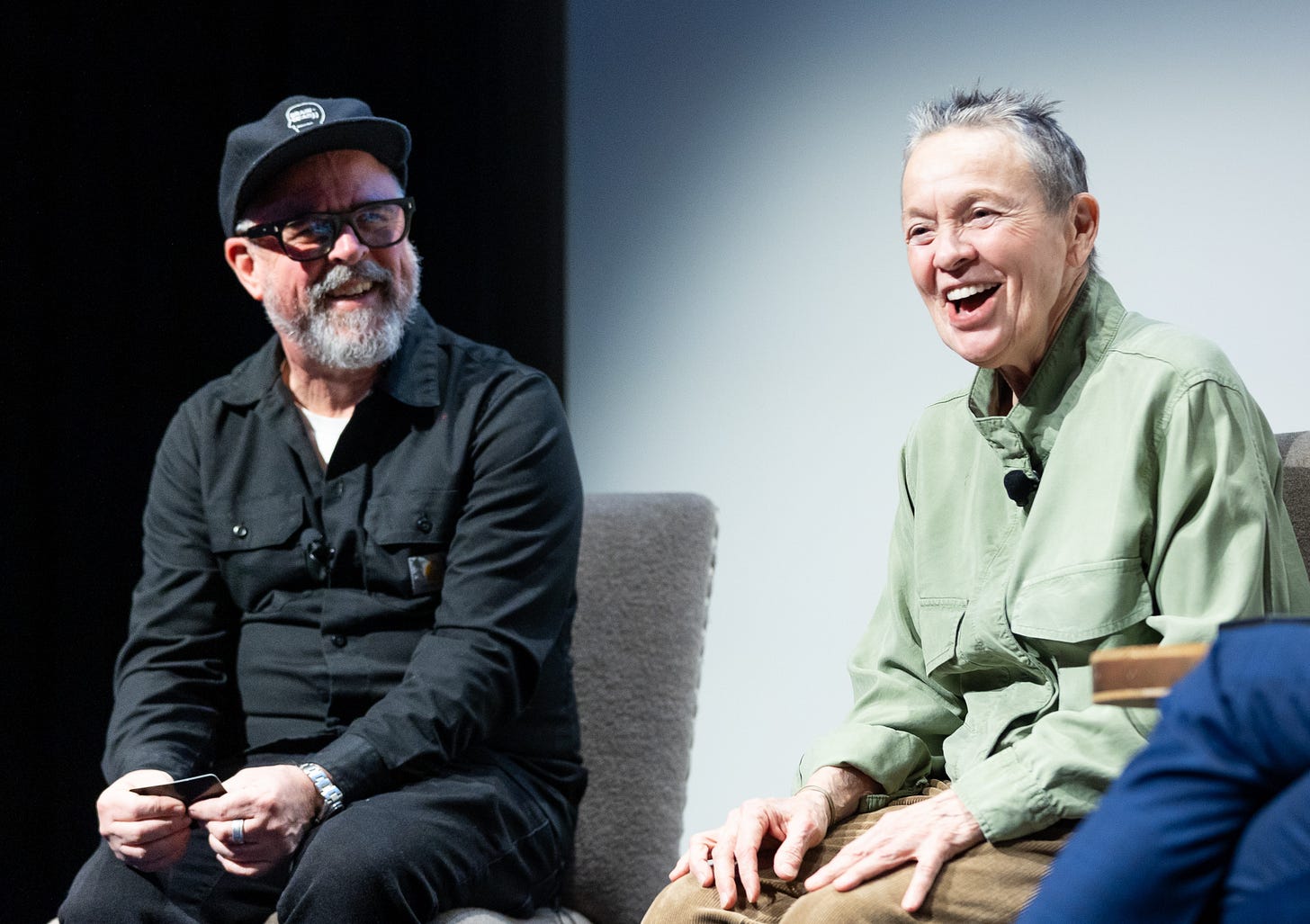
Hustwit went deep on the unique process behind his continually evolving film at Documentary Spotlight, the season’s third collaboration between The Ankler and Pure Nonfiction after previous events in Los Angeles and London. The Jan. 5 gathering featured compelling narratives centered on themes of culture, politics, love and survival. Pure Nonfiction’s Thom Powers emceed the gathering, sponsored by Picturehouse, with two hours of clips and conversations followed by a lively cocktail reception in the Crosby’s colorful, cool Brittania event space.
Joining Hustwit and Powers on stage for the afternoon’s first panel was longtime Eno collaborator and friend Laurie Anderson, who has a key role in the film (well, in some versions of it at least). The artist and musician shared that she often finds herself “suspicious” of works or processes that claim to nail down the essence of creativity, but she was impressed with how “specific” Eno was in its depiction of the icon’s life and career. “The way that you really showed how he’s working is, to me, much more valuable than [him] talking about himself,” she told Hustwit.
Two of the creators behind Frida (Amazon MGM Studios) spoke about their own efforts to capture an artist’s life in a wholly original way. The film covers well-trod territory — the story of artist Frida Kahlo — but does so by animating her art to make the audience “feel like we’re inside of her work, inside of her paintings, and feeling what she’s feeling while she’s painting,” said animator Renata Galindo.
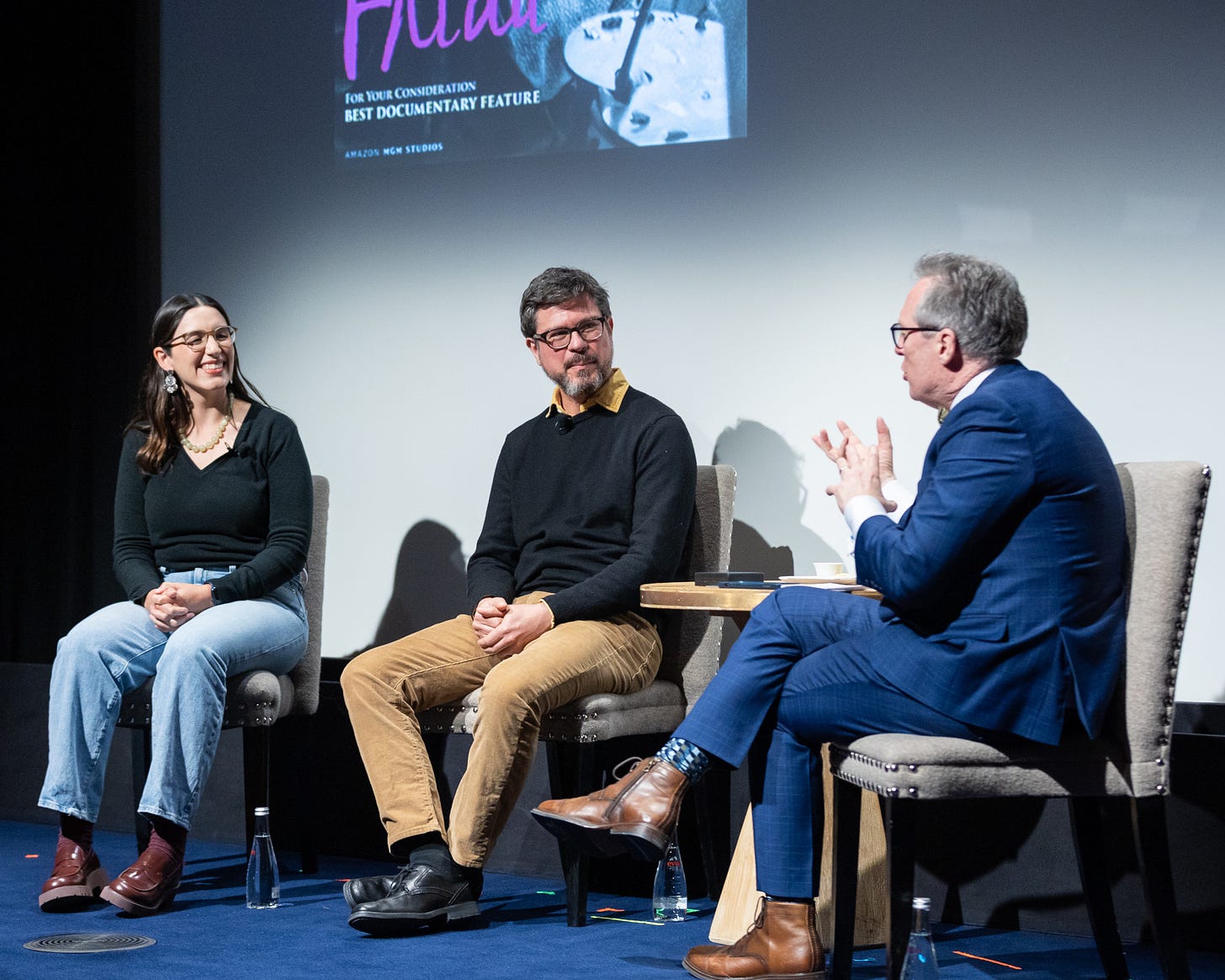
David Teague, who edited the film alongside director Carla Gutiérrez, was clear that Gutiérrez didn’t want to “make a film about Frida Kahlo — she wanted to make a film where you got in her head and you were feeling her emotions.” As an editor, Teague was guided by that approach each step of the way, always asking, “Are we still in Frida’s head? Are we not breaking the spell?”
When the Personal Is Political
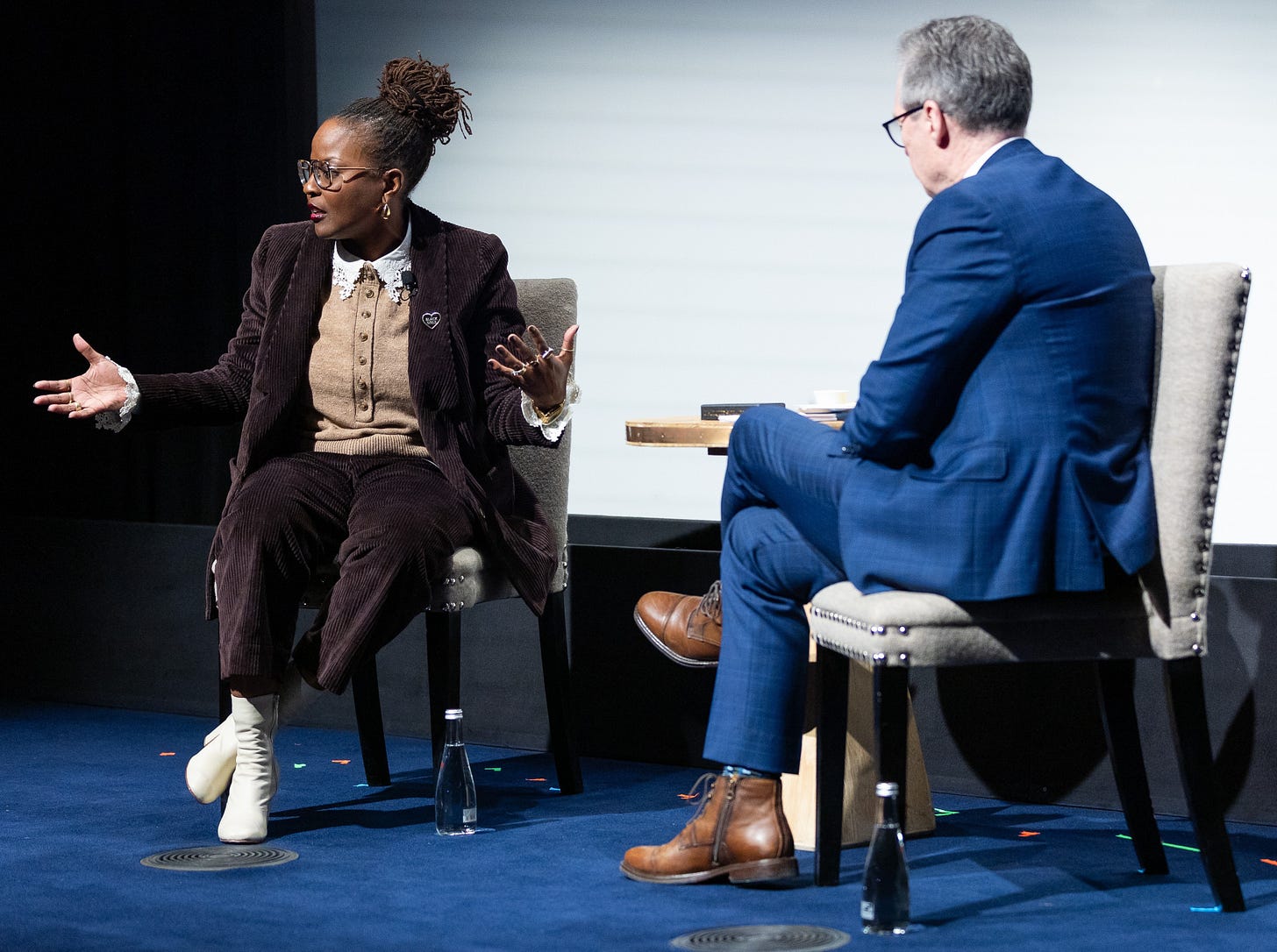
The other five featured films varied in theme and tone, but they all share a commitment — personal, passionate and political — to drive change.
With Daughters, Angela Patton — CEO of Girls For A Change and the film’s co-director — has already seen its powerful story make an impact. The Netflix documentary revolves around a father-daughter dance inside a prison (part of an initiative created by Patton), and its storytelling centers the girls and their perspective. “I’m excited that I have five Date with Dad programs that actually will be facilitated by girls, for a change, because of the film,” she said.
Patton launched Girls For A Change 18 years ago, but her 2012 TED talk inspired co-director Natalie Rae to reach out to her about collaborating on a documentary.
Even more than spreading the word about Date with Dad programs, Patton hopes the film can shed light on the brutal nature of mass incarceration and how it affects individual families. “It was an opportunity for [the daughters] to really use this doc as a healing tool for them and to start to have conversations and be comfortable in rooms and really have an active listener,” she says. “It’s not often that girls will share this with their friends or even in a home.”
Will & Harper (Netflix) features comedy great Will Ferrell, but the laughs — and there are plenty of them — aren’t the heart of the story. The film follows Ferrell and his friend of 30 years, Harper Steele, along a 17-day cross-country road trip less than a year after her transition to live as a woman. It’s an opportunity to recalibrate their friendship and for Steele to recalibrate her relationship to America.
As the pair traveled through the U.S., the goal was to make each situation they encountered feel authentic and organic, said producer Rafael Marmor. But they frequently couldn’t avoid drawing a spotlight. “We’re traveling with Will Ferrell and him getting recognized or noticed could immediately make it a mob scene,” he said. “There would be hundreds of people outside of a place if we were in it for too long.”
“The hope of this movie is when you’re watching it, you get to really know a trans person,” Marmor said, noting that 70 percent of Americans have not met a trans person, and the film could have a part in changing that.
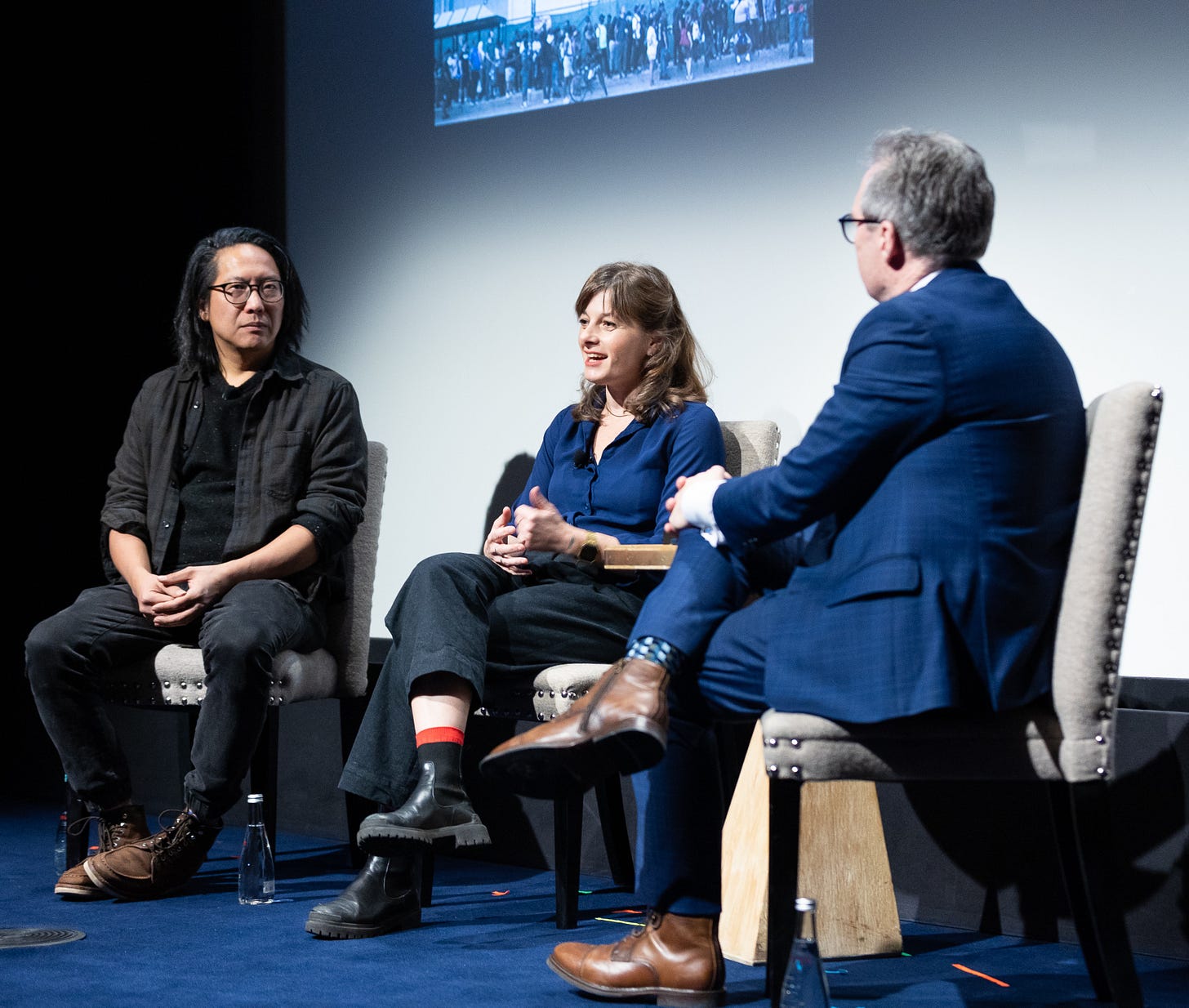
Another film that takes viewers somewhere they otherwise wouldn’t get to go is Level Ground’s Union, which follows a group of Amazon workers, led by organizer Chris Smalls, as they fight to unionize employees at their Staten Island warehouse. “It really felt like something was going to happen, win or lose,” said Stephen Maing, who co-directed with Brett Story. Filming actually began before the unionization campaign began, and over their 300 days of shooting, they captured a group of people who, Story says, are “learning how to become political organizers in real time.”
Union’s subjects are still fighting for recognition from Amazon, but regardless of what happens next for the workers, “The genie is out of the bottle,” Story added. “Workers’ struggle is contagious, and seeing one group of people win this victory when they weren’t supposed to continues to be inspiring.”
Tackling Trauma
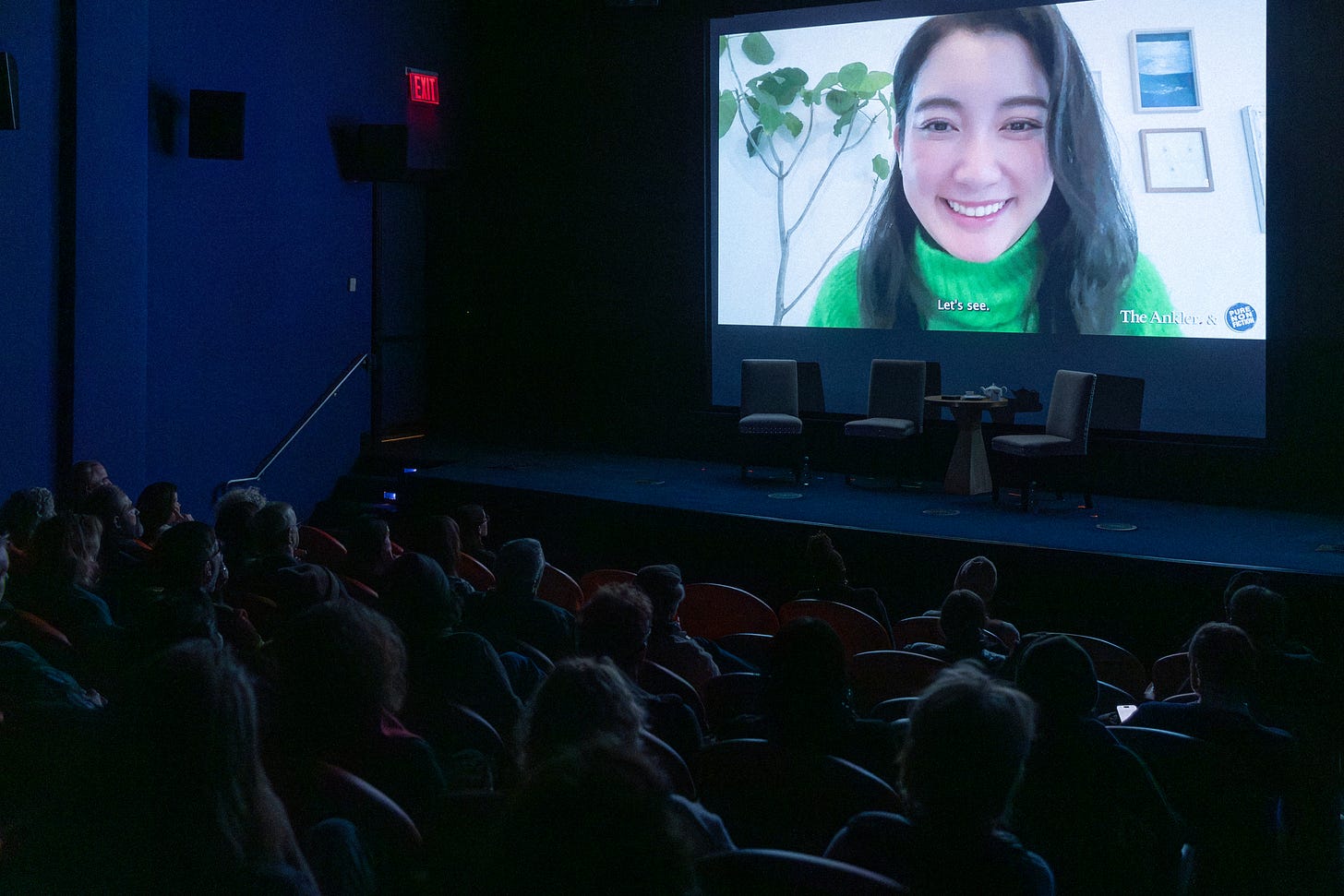
Oscar-nominated documentarian Joe Berlinger (2011’s Paradise Lost 3: Purgatory) has no involvement with Porcelain War, but as soon as he saw the Picturehouse film, he reached out to producer Paula DuPré Pesmen and offered to help spread the word about it. “I just offered my assistance,” he said. “I just felt it was this film that was so important.”
Berlinger was drawn to the fierce spirit of Slava Leontyev (whose dog, Frodo, also joined the group on stage), his wife and their friend, as the three artists chose to stay in their native Ukraine and sustain their creative work as ceramists against the backdrop of the war with Russia. “We are the same peaceful people, and we’re trying to save the state of mind that we had before the war,” Leontyev said. “It was really natural for us, as artists, to look around and try to find something beautiful and really important, because war is completely disgusting.”
Another film that aims to transform a devastating experience into something inspiring and meaningful is Shiori Itō’s Black Box Diaries (MTV Documentary Films), in which the Japanese journalist documents her investigation into her own sexual assault and the subsequent legal case.
Since its premiere at Sundance last year, the doc has screened in more than 50 different festivals in over 30 countries, where Itō has found that every person who sees it is “carrying something” related to sexual assault — for themselves or for someone they love. She’s proud that the film has created a “safe space” for people to reflect on our support systems for those who’ve experienced similar trauma.
Going forward, Itō hopes to screen the film in Japan, where there’s been pushback to her story and where laws around sexual abuse remain antiquated. “We need to see it to be able to talk about it,” she said. “So I really, really hope we can find a way to somehow screen it in Japan, and we can maybe find a brave theater or distribution company to do it.”

Itō, who joined Powers by video a few days before the event because she was home in Japan, couldn’t attend the reception that followed the day’s conversations. But the filmmakers and documentary lovers on hand congregated in the lounge to continue the conversation about everything they’d seen. When not waiting to chat up Patton, Hustwit or any of the other filmmakers, the crowd lined up to get their photos taken in Picturehouse’s complimentary studio and enjoyed everything from sliders to chicken satay.
Placed around the room were some of the fine porcelain figurines created by Leontyev and his wife, Anya Stasenko, a reminder of the fragility, beauty and resilience that made all the day’s stories so memorable.



